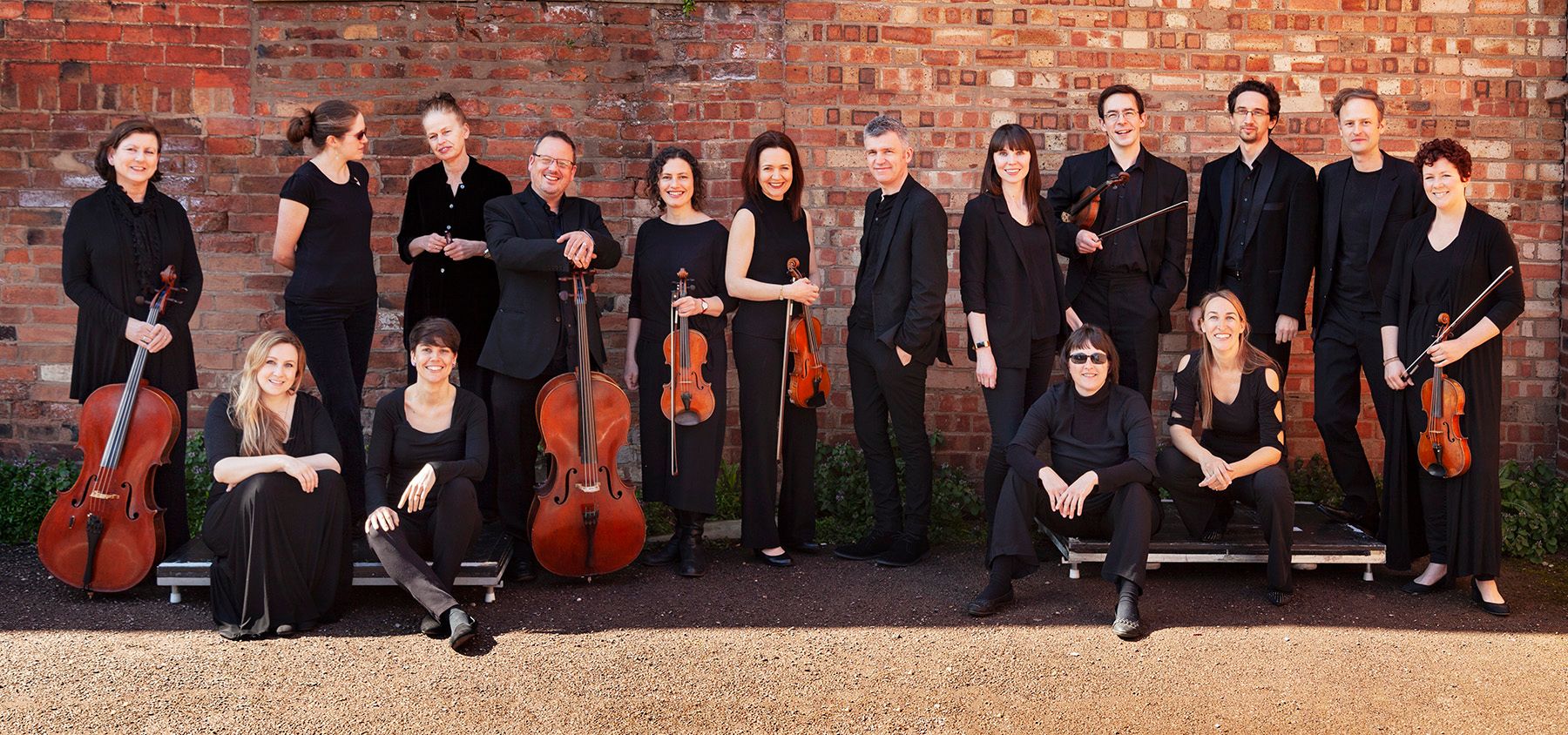Wind, Sand & Stars: The Orchestra of the Swan Digital Concert
A wonderful hour of music and storytelling

The Orchestra of The Swan (OOTS) is based in Stratford-upon-Avon: a concert there in those halcyon days of live performance, in October 2020 was fascinating (see my review here). The timing of this online event aligns nicely with the release of their release Timelapse, due out January 22, a disc of music by composers from Schubert to Bowie, from François Couperin to Adès. (In the meantime, I've included a link below to the orchestra's recording of John Ireland Music for String Orchestra on Naxos, with Raphael Wallfisch, cello).
This is the second of OOTS's second straight-to-streaming "Night Owl"concerts. It captures the magic of the world as seen from above via the writings of Antoine de Saint-Exupéry: the desert sand, wind and stars. The first of these Night Owl concerts, Luna, mapped man's journey to the Moon.
Saint-Exupéry, writer (author of the famous novella Le Petit Prince), philosopher and pioneer pilot, disappeared during a reconaissance mission on July 31, 1944. We hear extracts form his autobiography Wind, Sand and Stars, expertly narrated by Graham Padden. The music around these extracts is of 20th century France. Initially, we hear Saint-Exupéry's beautiful, expressive words, against background wind and morse code. "I live in the realm of flight" he says, on on comes Ravel's Introduction and Allegro, with beautiful, colourful stage lighting. The performance is magical, the swathes of harp against gorgeous toned flute. But maybe it was the fragility of some of the string playing that was most atmospheric.
Poetic narrations of flight formed a most memorable part of this experience: the second movement of Ravel's String Quartet depicts the seemingly miraculous arrival of the lights of the airport, and the quartet of players from OOTS deliver an active, yet easily flowing performance. The music itself seems to glide; we encounter Ravel's Quartet again, later, like a thread running through the tale.
Satie's Gnossienne No. 1 (arr. David Le Page), with a terrific clarinet by Sally Harrop, is tremendously atmospheric. And as we hear that at least the protagonist has "breathed the wind of the sea," so we hear La Mer: but not the one we might reasonably expect. This, instead, is La Mer by Charles Trenet, arranged by Le Page/Turner, a popular song you'll know when you hear it. Here's Charles Trenet himself:
Scored for solo strings (including double-bass) and clarinet and harp, it is given in an utterly delightful performance, with a lightly jazzy use of string portamento (sliding between notes). And because it's January, and lockdown, it's worth mentioning that this song forms the background for a Mr Bean classic:
Describing the magic of a night-time dessert walk in the Sahara, Ravel's Introduction and Allegro seems the perfect choice; the idea of a morning gift of café au lait and croissants in Casablanca is depicted via Le Page's own Snow Falling on Cedars, a long-breathed melody on violin against a curtain of harp.
The beautiful poetry of the dazzling of the night clouds and achieving a peace that passes all understanding is illustrated by Debussy's Danse sacrée, just as Saint-Saëns' Fantaisie for violin and harp descibes his entering into the world of the sparkling town lights he has seen from above (after this description, you may experience landings on night flights in a very different, far more magical, way!).
The entire concert is beautiful, including a tasteful and sensitive arrangement of Debussy's La fille aux cheveaux de lin (The Girl with the Flaxen Hair) by Le Page, and the perfect choice of Piazzolla's Oblivión (arr. Garcia) for the coming of the night.
Devised and created by David Le Page. this wonderful hour of music and storytelling, beautifully lit with something of the ambience of a night-time café in Paris, was recorded at the Playhouse, Stratford-upon-Avon, on Tuesday, November 24, 2020. There's plenty to relish in the performances: Sally Harrop's clarinet and Diane Clark's flute both shine as woodwind soloists, with Eleanor Turner the superb, and in this repertoire essential, harpist.
This superb video is courtesy of Woodbury Studios; equally, one should credit sound and mixing by Simon Allen. Below is the trailer; a link to ticketing is in the comments; also below that is a link to the excellent Naxos disc of music by John Ireland by the Orchestra of The Swan.
The next digital concert in this series is entitled Doubles and will be available to stream from February 12, 2020.
